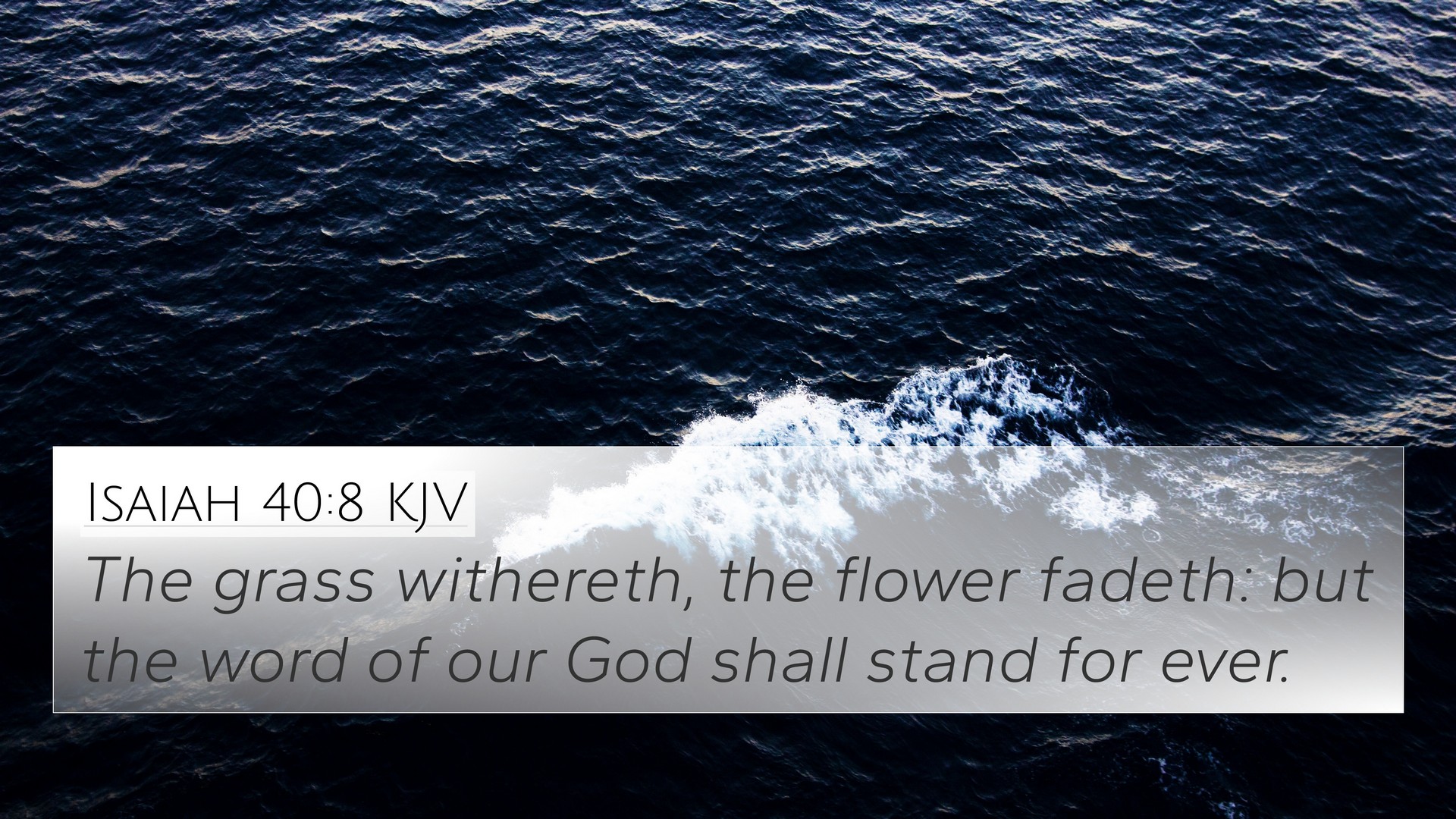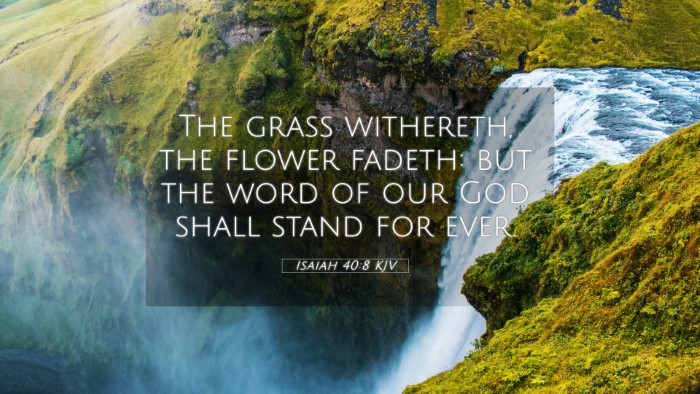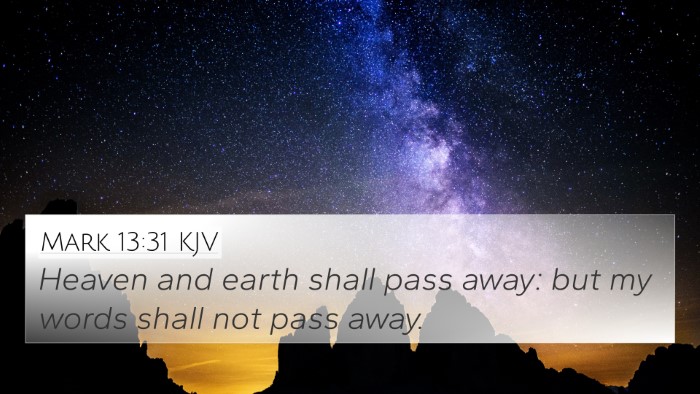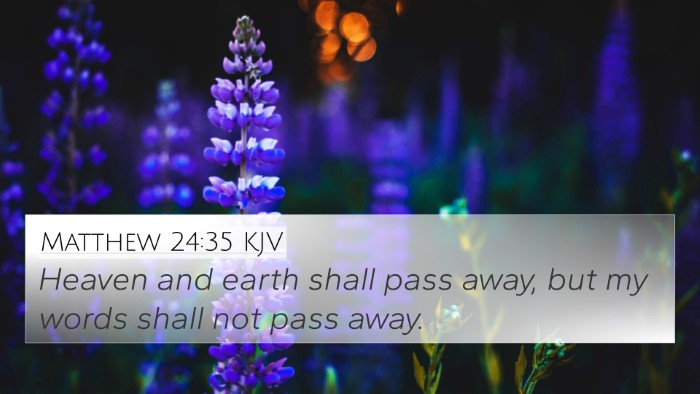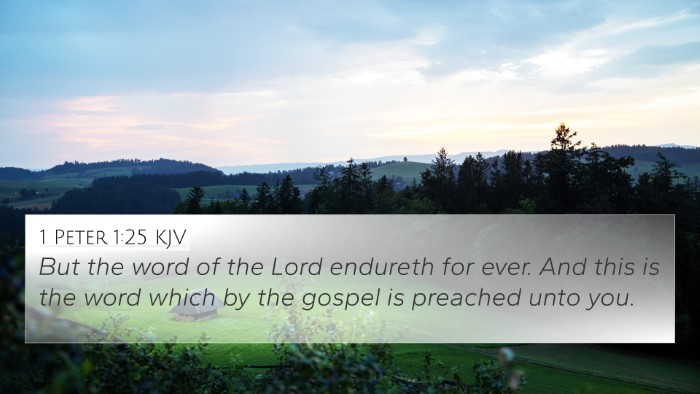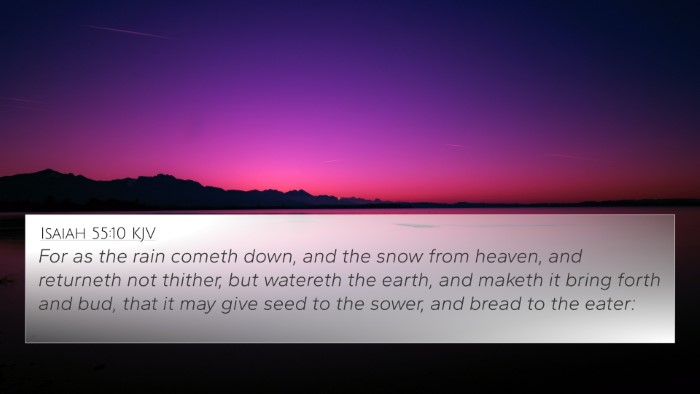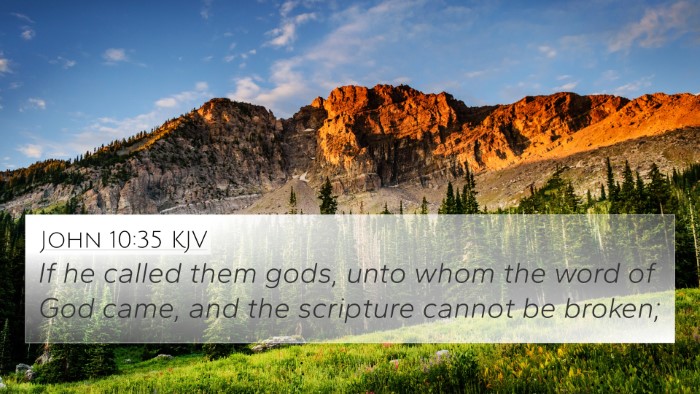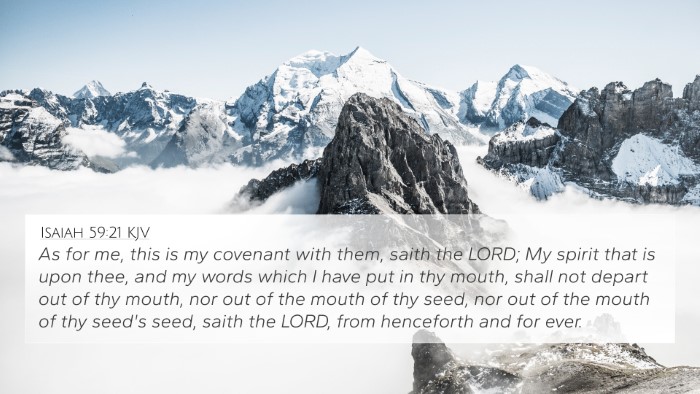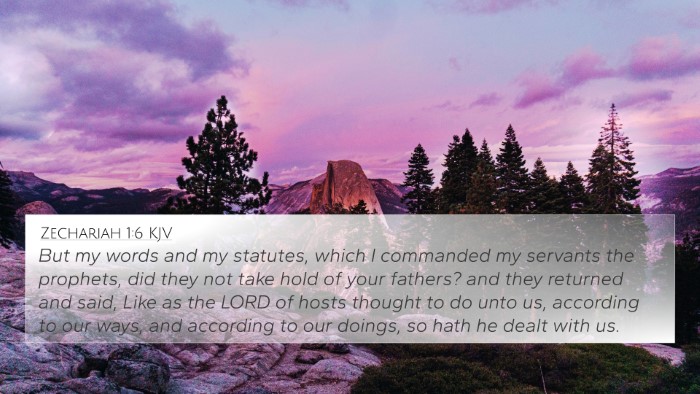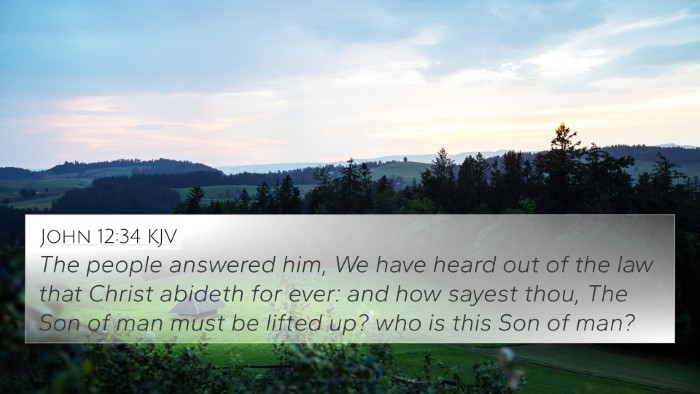Understanding Isaiah 40:8
Bible Verse: “The grass withers, the flower fades: but the word of our God shall stand forever.” – Isaiah 40:8
Meaning and Interpretation
The verse Isaiah 40:8 emphasizes the eternal nature of God's word in contrast to the fleeting nature of earthly things. The imagery of grass and flowers reflects the temporality of human life, beauty, and achievements. In connection to public domain commentaries, we can draw several insights:
- Matthew Henry: Henry explains that the "grass withers" symbolizes how quickly our lives and worldly pursuits fade. He points out that God's promises remain true and unchanging, providing believers with hope and stability amidst life's uncertainties.
- Albert Barnes: Barnes connects the theme of permanence in God's word with the transitory nature of creation. He stresses the reliability of God's declarations and teachings compared to the brevity of human existence, encouraging readers to place their trust in Him.
- Adam Clarke: Clarke supports the idea of God’s word being everlasting by noting that it serves as a foundation for faith. He underscores the contrast that while all earth's beauty may fade, the divine truth persists, guiding the faithful in their spiritual journey.
Cross-References
Isaiah 40:8 connects with many other Bible verses, illustrating the theme of God's eternal word. Here are some key cross-references:
- 1 Peter 1:24-25: "For all flesh is as grass, and all the glory of man as the flower of grass. The grass withers, and the flower thereof falls away: But the word of the Lord endureth forever."
- Psalms 119:89: "For ever, O Lord, thy word is settled in heaven."
- Matthew 24:35: "Heaven and earth shall pass away, but my words shall not pass away."
- Luke 21:33: "Heaven and earth shall pass away: but my words shall not pass away."
- John 10:35: "If he called them gods, unto whom the word of God came, and the scripture cannot be broken."
- Revelation 22:19: "And if any man shall take away from the words of the book of this prophecy, God shall take away his part out of the book of life."
- Isaiah 55:11: "So shall my word be that goeth forth out of my mouth: it shall not return unto me void, but it shall accomplish that which I please..."
Thematic Connections
This verse not only stands out as a promise of endurance but also opens doors to deeper thematic studies within the Bible. The following thematic connections can be explored:
- Nature of God's Promises: Isaiah 40:8 aligns with themes of fidelity and assurance found in texts like Numbers 23:19 and Romans 4:21.
- Comparison of Earthly and Heavenly Matters: The transient qualities of life examined in Ecclesiastes (Ecclesiastes 1:2) similarly emphasize the need for a focus on the eternal.
- Endurance of God’s Truth: Verses such as 2 Timothy 3:16 underscore the value of scripture and the divine inspiration that grants it permanence.
Tools for Bible Cross-Referencing
For those studying Isaiah 40:8 and seeking deeper understanding through cross-referencing, consider using:
- Bible Concordance: A useful resource for locating keywords and their occurrences throughout scripture.
- Bible Cross-reference Guide: This tool helps navigate between verses that share themes or address similar messages.
- Cross-reference Bible Study: Engaging in studies that explore interconnections enriches comprehension.
Studying the Eternal Word
In concluding the examination of Isaiah 40:8, an understanding of its meaning is enhanced through comparative Bible verse analysis and thematic studies. Engaging with cross-references encourages a holistic view of scripture and nurtures a deeper relationship with God's ever-enduring word. Believers are reminded that while earthly life is ephemeral, the divine truth encapsulated in God's word will stand the test of time. This understanding aids in shaping faith, guiding decisions, and nurturing spiritual growth.
Encouragement for Further Study
For personal exploration, consider these questions:
- What other verses affirm the eternal nature of God's word?
- How does understanding the fleeting nature of life affect your faith?
- What practical steps can you take to find and apply cross-referenced verses in your own life?
